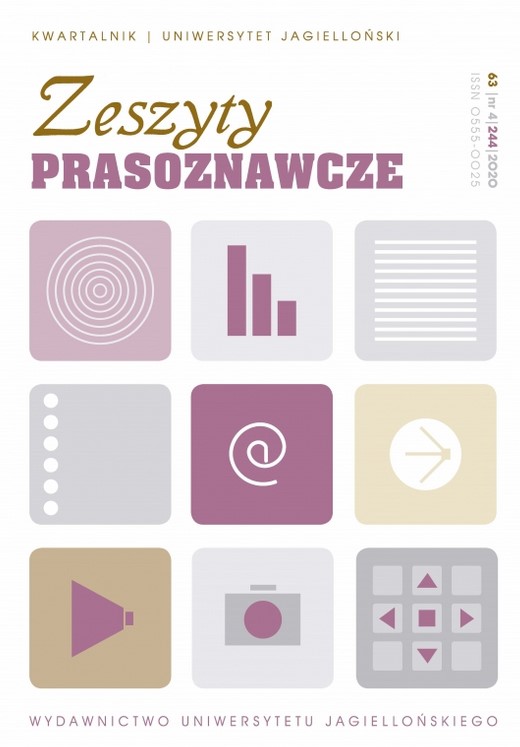Rola serwisów internetowych jako narzędzi oceny dorobku naukowego. Przykład wykorzystania serwisów Google Scholar, ResearchGate i Academia.edu przez wybranych polskich reprezentantów nauk o komunikacji społecznej i mediach
The Role of Social Networking Services as Tools for Evaluating Scientific Achievements. An Example of Using Google Scholar, ResearchGate and Academia.edu by Selected Polish Representatives of Social Communication and Media Sciences
Author(s): Małgorzata Kowalska-Chrzanowska, Przemysław KrysińskiSubject(s): Media studies, Higher Education , Social Informatics, ICT Information and Communications Technologies
Published by: Wydawnictwo Uniwersytetu Jagiellońskiego
Keywords: scientific output; networking services for scientists; Google Scholar; ResearchGate; Academia.edu; social sciences; media and communication;
Summary/Abstract: Activities of academic staff members in the network environment may have various forms – from passive presence, through participation in discussions, to publishing of the latest research results in social media. In this paper, the authors present the results of analyses conducted on the presence of the most recent (2017–2019) publications by the representatives of the widely-understood social communication and media sciences in three selected networking services for scientists: Google Scholar, ResearchGate, and Academia.edu. In the face of the results, they are trying to answer the question of how the representatives of this discipline communicate the most recent scientific findings in the media space, i.e.: what types of publications are shared, what is the form of the scientific communication created by them (publication of reference lists’ descriptions, full papers, pre-prints and post prints), and what is the audience reception (number of downloads, displays, comments). The analyses covered 100 selected representatives of the scientific environment (selected in interval sampling), assigned, according to the OECD classification, in the Scientists (“Ludzie nauki”) database and the “media and communication” discipline.
Journal: Zeszyty Prasoznawcze
- Issue Year: 2020
- Issue No: 4 (244)
- Page Range: 9-36
- Page Count: 28
- Language: Polish

